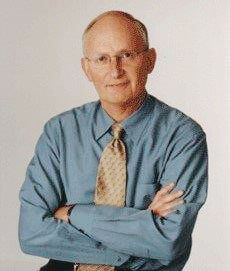This year, the third day of Hanukkah will coincide with Christmas. There are differences between the two, which are important and significant.
Christmas celebrates the birth of Jesus of Nazareth, the founder of the Christian faith, who, after being born, was placed in a manger in Bethlehem. Hanukkah celebrates the rededication of an ancient temple in Jerusalem after it had been desecrated by the Syrian worshippers of idols. When the Jews returned to rededicate the temple, they found that most of the oil had been used for idolatrous worship, and therefore, it was unfit for use in the service of the Almighty.
However, as the story goes, there was a small cruse of oil that remained sealed, and was therefore eligible for the service. It was expected to last for only a few hours, but to the surprise and delight of everyone, it lasted eight days, burning more brightly each day.
Candles are lit during the eight days of Hanukkah, beginning with one on the first day and ending with eight on the last.
There was some dispute among the rabbis as to how these candles should be lit.
Rabbi Hillel said that we should start with one, and go up to eight. Rabbi Shammai said that we should start with eight, and come down to one. The final decision was that we should increase the number daily, rather than decrease it.
It was their way of saying that this world is getting brighter and better as time goes on. Civilization is not running down, but building up through the ages, until the Messiah comes and the world becomes what God planned.
Although there are differences between Christmas and Hanukkah, there are also similarities. Each holiday emphasizes the importance of light.
Christmas sees trees decorated with lights, and Hanukkah has the lights of the Hanukkiah.
From time immemorial, the winter solstice was celebrated with bonfires. It was man’s rebellion against darkness, his insistence on light, the light of knowledge, hope and of faith that dissipates our fears, superstitions and our despairs.
It is not accidental that God created light first, as without it, God’s world would have been impossible. What our world needs now is more light.
There is another similarity between the two holidays, as both were created during a hostile world.
Jesus was born under the threat of death, by the tyrant Herod, and his physical life was ended with a crucifixion, as were the lives of thousands of his fellow Jews at the hand of the Roman oppressor. Yet, today, he is revered by millions throughout the world, as persecution and death cannot quench an idea from whose time has come.
It’s also the same with Judaism, as Jews were persecuted by the Syrian tyrant Antiochus, who tried to impose the Greek way of life upon them. Many suffered martyrdom, rather than surrender their faith, and under the dynamic leadership of the old priest Mattathias and his five brave sons, they rebelled successfully against tyranny, helping make Judaism and Christianity a power for goodness in the world.
It must never be forgotten that if it weren’t for the Hasmonean family, and the victory of the Maccabees over Syrian tyranny, Judaism and Christianity wouldn’t exist. The light of faith would have been quenched, and paganism would have ruled our world.
As we decorate our Christmas trees and kindle the lights of Hanukkah, let’s thank God for the light that still shines in our world. Let us resolve that it will never go out, and that civilization will continue to shed its radiance over all humanity, bringing new knowledge, wisdom, hope and faith to a world bathed in tears and blood.
I wish you all a meaningful holiday, and let us all continue to work together to bring more light and peace to our world.
ED. NOTE: Rabbi Isaacs is rabbi at Beth Judah Temple, Wildwood. He invites questions emailed to his website, www.rabbiron.com.








